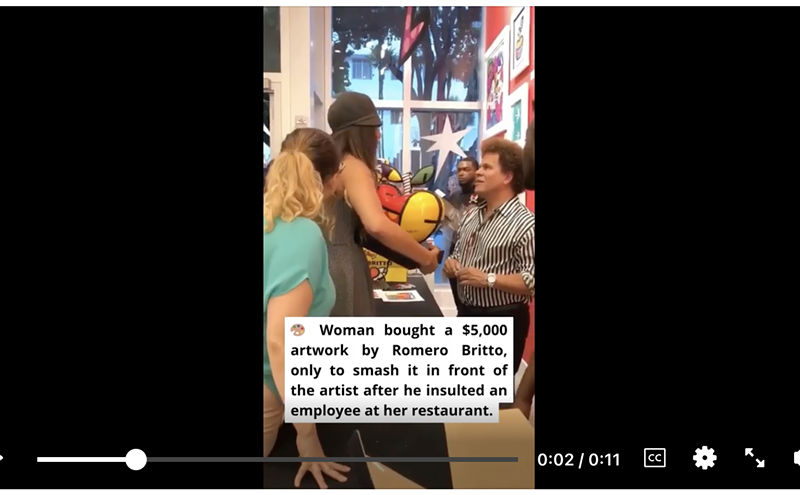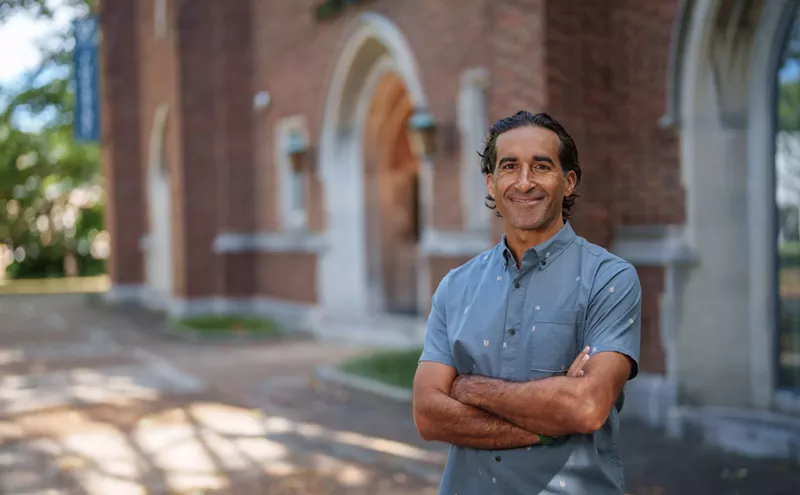"If you say in the first chapter that there is a rifle hanging on the wall," the Russian writer Anton Chekhov supposedly once said, "in the second or third chapter it absolutely must go off."
In Robert Andrew Powell's new memoir, Running Away, the walls aren't equipped with rifles but with inspirational quotes. Chirpy and upbeat, they are the aphorisms of American self-help culture. The slogans from athletic shoe advertisements. The stuff of grade-school cafeteria posters. "To change one's life: Start immediately," reads one plastered on Powell's apartment wall. "Do it flamboyantly. No exceptions."
These platitudes might lack firepower, but they are nonetheless persuasive. And when Powell's life falls apart, he turns to them for meaning. As the quotes instruct, he dramatically ditches his life in Miami and drives cross-country to the city's climatological and spiritual opposite: Boulder, Colorado. There he attempts to shed his South Florida sloth and recast himself as a disciplined runner, like his successful businessman father. He trains obsessively in a feverish attempt to duplicate his dad's feat of qualifying for the Boston Marathon within his first year of running. He loses weight, drops time, wins admirers.
What separates Running Away from the pack of other marathon-related memoirs — each with a commanding title like Eat and Run and Run or Die — is Powell's brutal honesty. An award-winning former New Times staff writer, Powell is ruthless in ridiculing Boulder's bizarre blend of hippie spirituality and hyper-commercialized fitness industry. But he is also straightforward about the seductiveness of the idea of self-improvement. Running may be painful, but it's better than standing still.
The memoir opens with Powell in a downward spiral. It's January 2007 — six years since Powell quit New Times, four years since his marriage fell apart because of his infidelity. His rebound girlfriend has left him. His rebound-rebound too. He spurns freelance assignments in favor of surfing the internet, walking his dog, and wallowing in self-pity. When an uncle living in Miami commits suicide, Powell sees his own future in the blood-flecked bathtub.
Despite the quotes covering the walls of his apartment on the Miami River, Powell can't seem to pull himself out of his depression. But when he begins Googling his ex-wife, he finds a newspaper ad for an estate sale. "Have moved to Europe so Everything must go!!!"
"This is significant. This is news. This is what I was looking for, though this isn't what I was in any way expecting to find," he writes. "My wife — ex-wife — has moved to Europe. Blood rushes to my temples. Electric sparks flash across my nervous system, firing up everything. This is problematic. This hurts. Not that she's left Miami; I haven't seen or talked to her in three years. Not because the sale took place a week earlier and I've missed my chance to buy back the mixer we received for a wedding present. I start to freak out — I feel a serious, satisfying pain, perhaps like a stabbing — because she's moved on with her life. Everyone has now moved on with their lives. And I'm still in the apartment I rented temporarily, on a month-to-month basis, when I left her."
Powell's response — to pour his pain into running — is rooted in his troubled relationship with his father, a retired businessman and seasoned marathoner whose competitive streak stands in stark contrast to his son's spiritual and physical malaise. Powell selects Boulder as the site for his new life based upon a newspaper article touting it as the epicenter of the American running scene.
He marvels at the city's cottage industry of yogis, motivational speakers, and running coaches. Here everyone is wealthy, well educated, and wields a Subaru. Children on street corners sell origami instead of lemonade. And the only apartment Powell can afford is an asbestos-filled former chicken coop. He spends his savings on high-tech running gear. At the height of his obsession, he drops $400 for 90 minutes of instruction from a particularly famous fitness expert.
Powell weaves this struggle to become a runner with flashbacks to his childhood, dominated by his dad. The story of his father's transformation into an elite runner looms over Powell's own quest, and at points Running Away threatens to become an exercise in Oedipal desire. But Powell, whose two previous books also mine the world of sport for something deeper than box scores and quarterback quotes, injects enough humor to drive readers toward the book's finish line.
Without spoiling the memoir, it suffices to say that Running Away is more about failure than success. It's about the impossible goals we set for ourselves — whether on New Year's Day or the day we read our ex has moved to Europe — and the industry that creates those goals only to offer us expensive solutions.
The book is also about sports as an obsession. Boulder's most famous runner is Frank Shorter, a marathoner who won a gold medal at the 1972 Summer Olympics. Yet Shorter is consumed by his failure four years later, when he finished second to an East German almost assuredly on steroids. He has spent the rest of his life complaining about drugs' influence over sports.
Powell realizes his drive to run will never equal that of Shorter's, or even his dad's, partly because his demons just don't run as deep. Powell's father might not have been the most loving, but Shorter's dad was physically and sexually abusive.
"The fear of my dad and his high standards was a false front," Powell writes near the end of Running Away. "I don't have a steady job. I don't have a house on a golf course. I divorced, as he never would. Therefore, I'm a failure.
"But I'm not my dad," he continues. "I'm a totally different dude. I don't know if I even want a house and kids, really. Or the nine-to-five he clocked for more than forty years. I don't think it's an accident I'm not living his life."
Since Powell wrote Running Away in 2008, his life has taken twists and turns. Publishers passed on the memoir, so he moved to the murderous Mexican city of Juárez to write a book about soccer. Then he did the unthinkable: He moved back to Miami, the city he left four years earlier for fear of ending up like his uncle, dead in a bathtub.
This time, he is more motivated. Powell struck a deal with Amazon to publish Running Away.
And at a book reading last month, he told a small crowd that he was still writing — and running. "That's the takeaway from my time in Boulder," he writes near the end of the memoir. "There is nobility in not quitting."
Send your story tips to Cultist at [email protected].
Follow Cultist on Facebook and Twitter @CultistMiami.












